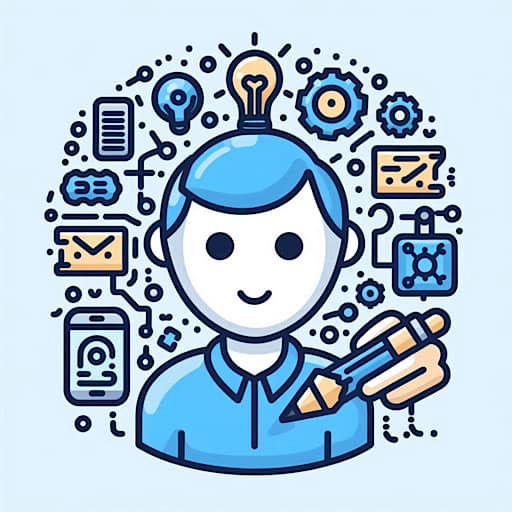
Includes: Apple Intelligence; Google Gemini; Samsung AI; Microsoft CoPilot; Claude; ChatGPT.
AI-powered chat bots and assistants are widely used for writing, research, coding and problem solving. However, not all AI systems work the same way and their strengths and weaknesses vary. This post brings you a comparison of some of the most well-known AI models currently available (as of March 2025).
Before we compare: a note on AI Accuracy
All models have a “knowledge cut-off”. This is a date after which they stop learning from new data so your results may not be up to date. For example if the “cut-off” is December 2024 and in January you asked for information only produced in January 2025, then you may not get the latest information. However, some AIs can access the web for real time updates when required. So, if you query is dependent on having the very latest information then make that clear in your chat with the system. Some of these bots are really friendly and easy to talk to.
ChatGPT – from OpenAI
Strengths: Engages in natural conversations, assists with creative writing, coding, and problem-solving. All users now have access to GPT-4o, which includes real-time web search capabilities.
Weaknesses: While capable of retrieving live data, its foundational knowledge is based on training data up to mid-2024.
Best For: General-purpose AI assistance, creative endeavours, and addressing complex queries.
Claude – from Anthropic
Strengths: Prioritises safety and ethical considerations through Constitutional AI principles, ensuring responsible and helpful interactions.
Weaknesses: Less widely recognised than ChatGPT or Google Gemini; availability may be regionally restricted.
Best For: Users emphasising AI safety, ethics, and responsible AI behaviour.
Gemini (formerly Bard) – from Google
Strengths: Provides direct access to Google Search for up-to-date information and excels in summarisation tasks.
Weaknesses: Some users perceive it as less creative compared to ChatGPT in writing and coding applications.
Best For: Users requiring live search capabilities and robust summarisation features.
Copilot – from Microsoft (powered by OpenAI models)
Strengths: Seamlessly integrates into Microsoft Office suite (Word, Excel, Outlook), enhancing productivity and business operations.
Weaknesses: Primarily tailored for work-related tasks, offering limited general conversational abilities.
Best For: Professionals utilising Microsoft tools in their workflows.
Apple Intelligence
Strengths: Aims to connect various apps and services within the Apple ecosystem, enhancing user experience through integrated AI functionalities.
Weaknesses: Faced delays in rollout; as of early 2025, the enhanced Siri remains a prototype with limited functionality. Apple’s stringent privacy focus may restrict AI capabilities compared to competitors.
Best For: Users deeply embedded in the Apple ecosystem who prioritise privacy and seamless integration across Apple devices.
Samsung Galaxy AI
Strengths: Introduced with the Galaxy S25 series, it features advanced AI capabilities powered by Google’s Gemini language models and Qualcomm chips, enhancing user interaction through voice commands and offering personalised responses.
Weaknesses: Despite technological advancements, Samsung faces challenges in increasing its market share against competitors like Apple.
Best For: Users seeking cutting-edge AI features in smartphones, particularly those interested in voice interaction and personalised assistance.
Choosing the Right AI for You
Selecting the most suitable AI system depends on your specific needs. For comprehensive AI assistance and creative tasks, ChatGPT offers a well-rounded experience. If real-time information retrieval is crucial, Google Gemini stands out. For productivity within Microsoft Office, Microsoft Copilot is the ideal choice. Apple Intelligence caters to users within the Apple ecosystem who value privacy and app integration. Samsung Galaxy AI appeals to those seeking advanced AI features in mobile devices, especially with a focus on voice interaction.
This video may also be of interest.
